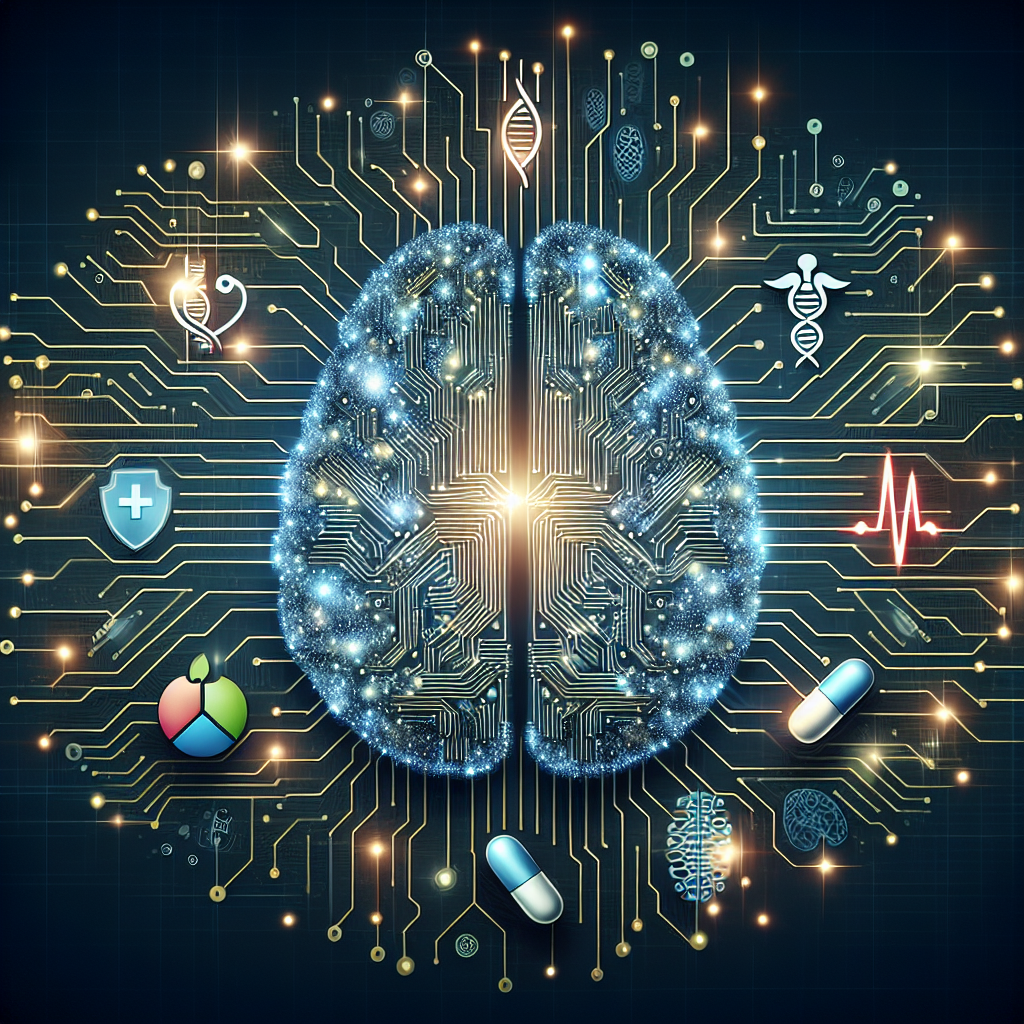Advancements in artificial intelligence (AI) have revolutionized many industries, including healthcare. One area where AI is making a significant impact is in personalized medicine. Personalized medicine, also known as precision medicine, is an approach to healthcare that takes into account individual variability in genes, environment, and lifestyle for each person. This approach allows for more targeted and effective treatments, leading to better patient outcomes. AI is helping to accelerate the adoption of personalized medicine by analyzing vast amounts of data to identify patterns and make predictions that can inform treatment decisions.
AI in Personalized Medicine
AI has the potential to transform personalized medicine in several key ways:
1. Data Analysis: AI algorithms can analyze large datasets, including genetic information, medical records, and other relevant data, to identify patterns and correlations that may not be apparent to human researchers. This allows for the discovery of new biomarkers, drug targets, and treatment options tailored to specific patient profiles.
2. Predictive Modeling: AI can be used to develop predictive models that can forecast the progression of diseases, identify at-risk patients, and recommend personalized treatment plans. This can help healthcare providers intervene early and provide more targeted and effective care.
3. Drug Discovery: AI is being used to accelerate the drug discovery process by analyzing vast amounts of data to identify potential drug candidates, predict their efficacy, and optimize their design. This can lead to the development of more effective and personalized treatments for patients.
4. Clinical Decision Support: AI-powered tools can provide healthcare providers with real-time clinical decision support by analyzing patient data, medical literature, and best practices to recommend personalized treatment options. This can help improve healthcare outcomes and reduce medical errors.
Challenges and Opportunities
While AI has the potential to revolutionize personalized medicine, there are several challenges that need to be addressed:
1. Data Privacy and Security: Personalized medicine relies on access to sensitive patient data, including genetic information. Ensuring the privacy and security of this data is crucial to maintaining patient trust and compliance with regulations such as HIPAA.
2. Interpretability: AI algorithms can be complex and difficult to interpret, making it challenging for healthcare providers to trust their recommendations. Developing transparent and interpretable AI models is essential for widespread adoption in personalized medicine.
3. Regulatory Approval: AI-powered tools used in personalized medicine may need to undergo regulatory approval to ensure their safety and efficacy. Navigating the regulatory landscape can be time-consuming and costly, hindering the adoption of AI in healthcare.
Despite these challenges, there are significant opportunities for AI in personalized medicine:
1. Improved Patient Outcomes: AI-powered personalized medicine has the potential to improve patient outcomes by providing more targeted and effective treatments. This can lead to better quality of life, reduced healthcare costs, and increased patient satisfaction.
2. Precision Medicine: AI can help identify subgroups of patients with similar characteristics who may benefit from specific treatments. This personalized approach to medicine can lead to better outcomes for patients and more efficient use of healthcare resources.
3. Faster Drug Development: AI is accelerating the drug discovery process by predicting drug efficacy, identifying new drug targets, and optimizing drug design. This can lead to the development of new treatments for diseases that currently have limited options.
FAQs
Q: What is personalized medicine?
A: Personalized medicine, also known as precision medicine, is an approach to healthcare that takes into account individual variability in genes, environment, and lifestyle for each person. This approach allows for more targeted and effective treatments tailored to specific patient profiles.
Q: How is AI used in personalized medicine?
A: AI is used in personalized medicine to analyze large datasets, develop predictive models, accelerate drug discovery, and provide clinical decision support. AI algorithms can identify patterns and correlations in data that can inform treatment decisions and improve patient outcomes.
Q: What are the challenges of using AI in personalized medicine?
A: Challenges of using AI in personalized medicine include data privacy and security, interpretability of AI algorithms, and regulatory approval. Addressing these challenges is crucial for the widespread adoption of AI in healthcare.
Q: What are the opportunities of using AI in personalized medicine?
A: Opportunities of using AI in personalized medicine include improved patient outcomes, precision medicine, and faster drug development. AI has the potential to revolutionize healthcare by providing more targeted and effective treatments tailored to individual patient profiles.
In conclusion, AI is transforming personalized medicine by analyzing vast amounts of data, developing predictive models, accelerating drug discovery, and providing clinical decision support. While there are challenges to overcome, such as data privacy and security, interpretability of AI algorithms, and regulatory approval, the opportunities for AI in personalized medicine are significant. By harnessing the power of AI, healthcare providers can deliver more targeted and effective treatments, leading to better patient outcomes and a more personalized approach to healthcare.

